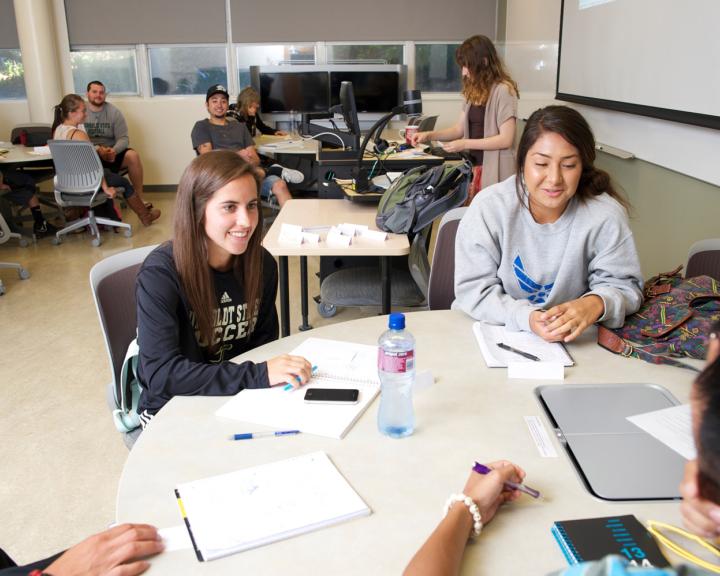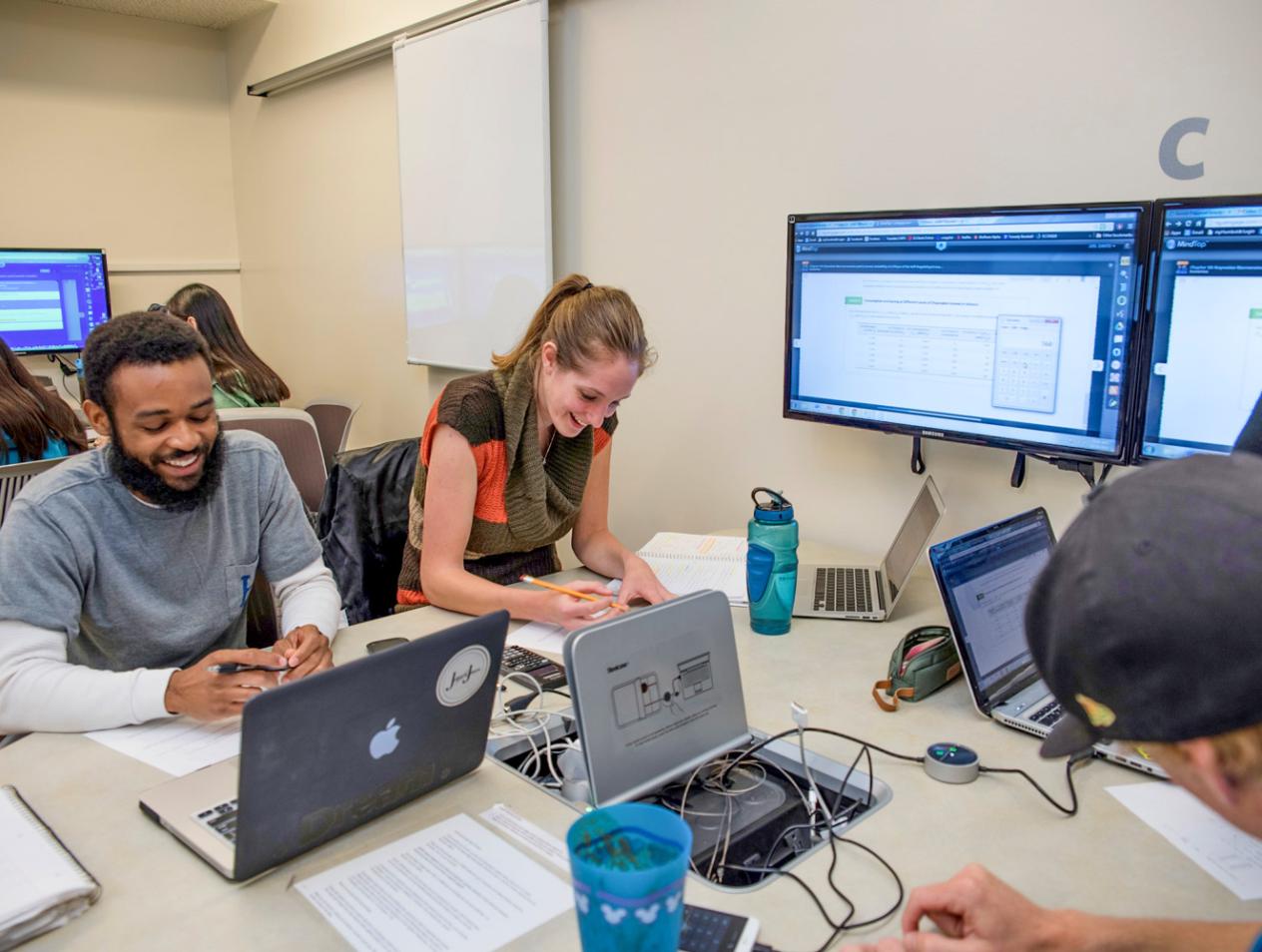Breadcrumb
Economics, B.A.
Want a degree that opens doors and makes an impact? Economics at our polytechnic university is all about solving real-world challenges—whether it’s shaping sustainable policies or driving local economic growth. Our program stands out with a strong focus on Environmental Economics and Regional Economic Development, offering experiential learning through research, internships (many of them paid!), and projects that connect you directly with industry and community partners. Small class sizes mean your professors know you by name, and you can customize your degree by choosing an emphasis and adding a minor in business, environmental policy, psychology, and more. If you’re looking for a dynamic, career-focused education that prepares you for the future, Economics is the way to go.
Why this program
Real-World Connections in a Small, Urban Setting
Our location gives you access to top business and government leaders through service-learning internships. In our small city, entrepreneurs and policymakers are eager to connect with and hire Cal Poly Humboldt Economics majors, giving you hands-on experience that stands out.
A Close-Knit Learning Community
At Cal Poly Humboldt, the strong connections between students and professors create a supportive learning environment. Senior students lead the Econ Forum for casual discussions outside class, and our new study lounge is the perfect place to grab coffee and collaborate.
Opportunities That Pay Off
Economics students don’t just study research—they conduct it. The Ruprecht Research Assistantship provides stipends for students to work with faculty or pursue independent projects, gaining practical in data analysis, policy evaluation, and economic modeling for future careers or graduate studies.

Emphases
If you're fascinated by how economics shapes the world, the General Economics Emphasis lets you dive deep into the subject. You'll explore upper-division electives in energy economics and climate policy, economic development, and economic theory, gaining a strong foundation for graduate school or careers in finance, government, and research. With faculty-led research opportunities and a comprehensive curriculum, you'll graduate with a traditional economics degree and ready to apply your knowledge in any field.
If you’re passionate about sustainability and want to shape environmental policy or work in consulting, our Environmental and Sustainability Economics Emphasis is the perfect fit. You’ll take all three of our environmental economics courses, exploring topics like clean energy, pollution reduction, and sustainable resource use along with related classes from across campus, giving you a broader perspective on today’s biggest environmental challenges. Whether you’re looking to drive policy change or help businesses go green, this emphasis gives you the tools to make a real impact.
Environmental & Sustainability Emphasis
If you love working with data and diving into complex analysis, our Applied and Quantitative Economics Emphasis might be the perfect fit. This path is ideal if you're looking to specialize in fields like data science, statistics, or mathematics. It’s a great choice if you're considering pursuing a PhD in economics as well, as it prepares you with the rigorous quantitative skills needed for advanced studies.
If you're looking for a more personalized academic experience, the Interdisciplinary Economics Emphasis offers a unique approach. In this path, you’ll choose a minor or equivalent in a different field that interests you. Whether it's business, psychology, music, or chemistry, you can tailor your education to match your passions and career goals. This flexibility allows you to blend economics with another discipline, giving you a diverse skill set for a wide range of careers.
Did you know?
“The Short Run" newsletter was first created by senior capstone students over ten years ago. Alumni, students, and faculty loved reading it so much that we continue to produce it today. Students who write newsletters gain valuable experience in designing and editing a professional publication. Plus, it's fun!
There are lots of hands-on opportunities for Cal Poly Humboldt Economics students outside of the classroom. Some students become Student Instructors and gain concrete teaching experience while helping other students succeed.
One of the best-known, ongoing, community-based research projects at Humboldt is the Humboldt Economic Index. Two students gather local business data and provide analysis in a report published online each month. Working on the Index gives students invaluable experience. Plus, the positions are paid!

Careers
Economics majors are in demand everywhere and get among the very highest starting salaries. Economics teaches you skills you can use every day and in every job. It's sometimes difficult for students to imagine what they can do with an Economics degree—that's because Economics majors are hired everywhere! You'll find our recent graduates working in tech, as environmental consultants, at banks, in investment and wealth management, for state and local government, as utility analysts and city planners, and running their own businesses.







